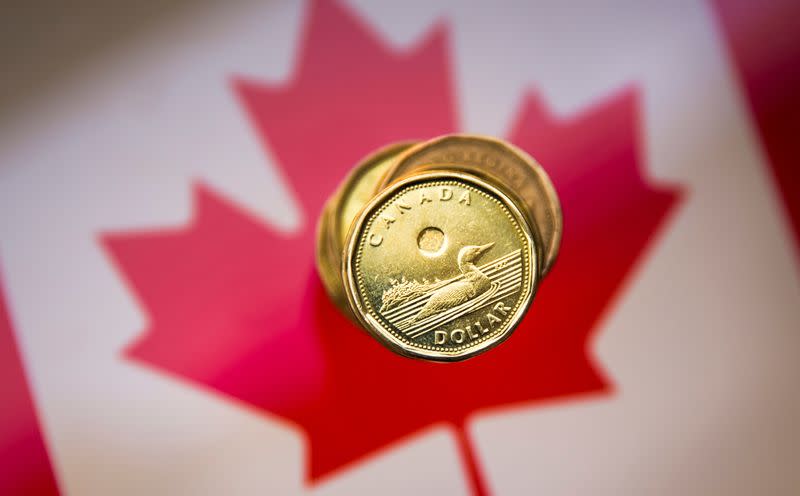Canadian dollar climbs to 5-week high ahead of inflation data

By Fergal Smith
TORONTO (Reuters) - The Canadian dollar strengthened to a five-week high against its U.S. counterpart on Monday as hopes the U.S. economy could avoid recession bolstered sentiment and ahead of domestic inflation data that could guide expectations for Bank of Canada rate cuts.
The loonie was trading 0.3% higher at 1.3640 to the U.S. dollar, or 73.31 U.S. cents, after touching its strongest intraday level since July 15 at 1.3636.
"The Canadian dollar, which increasingly functions as a proxy for global risk appetite, is gaining as investors pile into 'soft landing' bets and could continue to do so if tomorrow's domestic inflation data leaves monetary policy expectations broadly unchanged," said Karl Schamotta, chief market strategist at Corpay.
The S&P 500 and the Nasdaq rose for an eighth straight session as concerns around an impending U.S. recession abated and markets zeroed in on Federal Reserve Chair Jerome Powell's speech at Jackson Hole later this week.
"Powell is expected to join private-sector observers in acknowledging growing downside risks in U.S. labour markets while pointing to a sustained moderation in inflation pressures - conditionally setting the stage for a rate cut at the central bank's September meeting." Schamotta said.
The BoC has already begun lowering interest rates and says it's likely to cut further if inflation cools in line with forecasts. Canada's consumer price index report for July, due on Tuesday, is expected to show inflation slowing to 2.5% from 2.7% in June.
Canada's freight rail network could come to a grinding halt this week, inflicting a huge economic toll after the country's two largest railroad operators on Sunday issued lockout notices to the Teamsters union that represents nearly 10,000 workers.
The price of oil, one of Canada's major exports, fell 2.9% to $74.45 a barrel, while Canada's 10-year yield was little changed at 3.065%.
(Reporting by Fergal Smith, Editing by Nick Zieminski)
